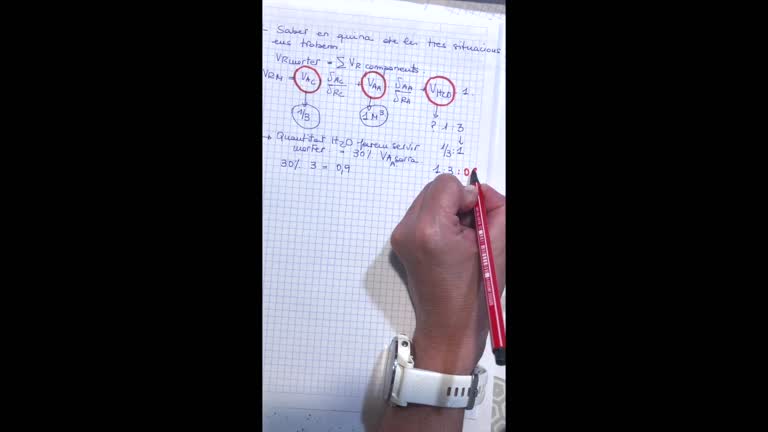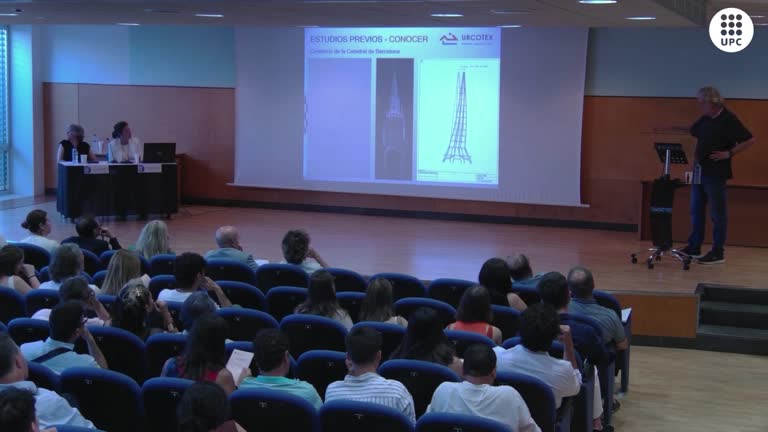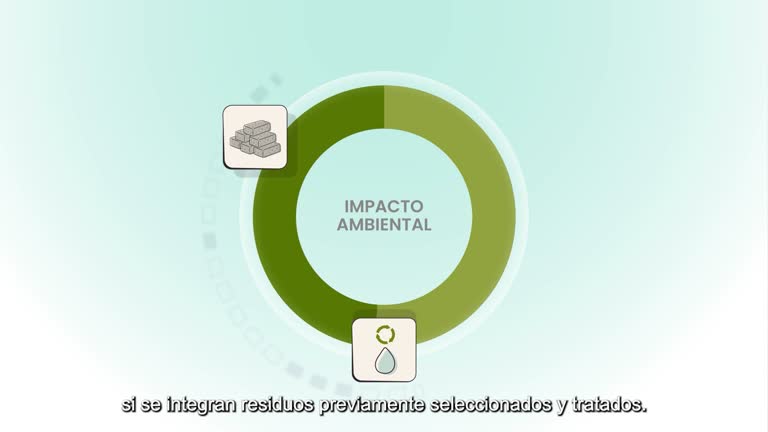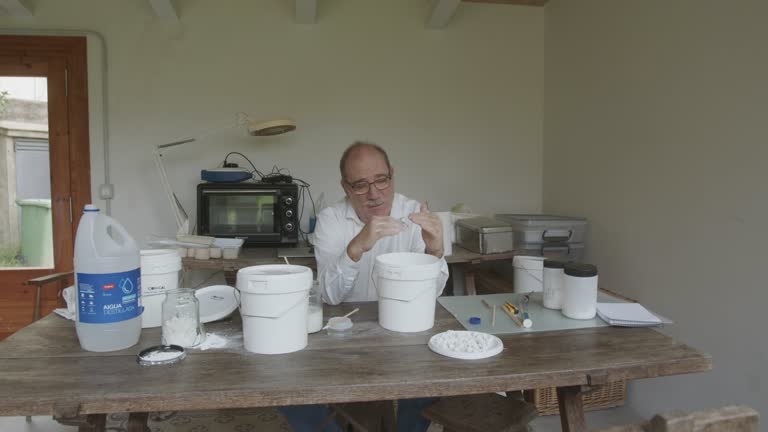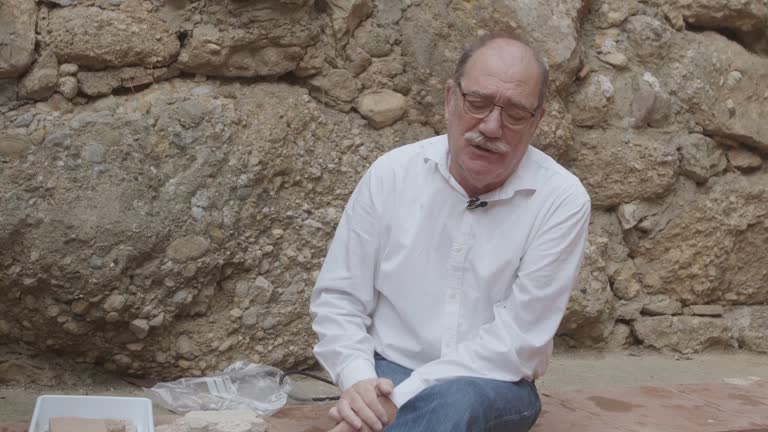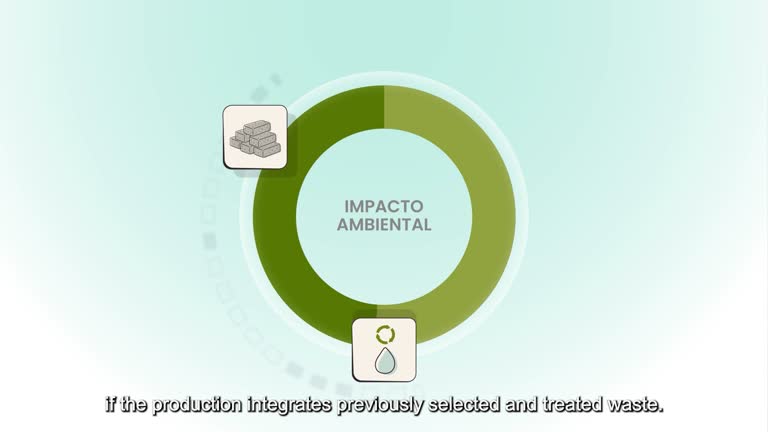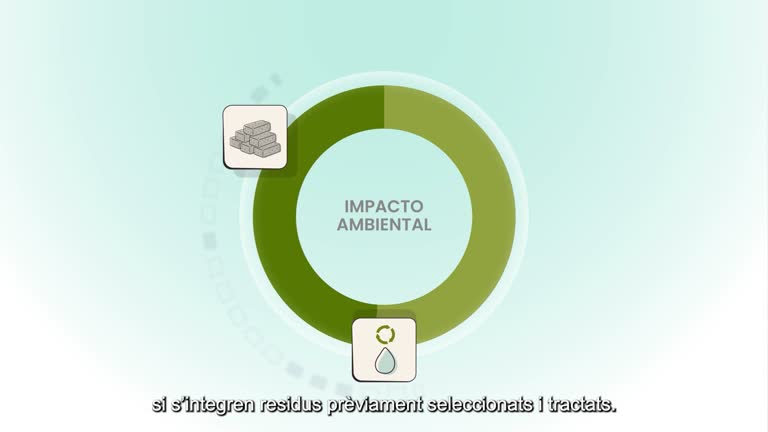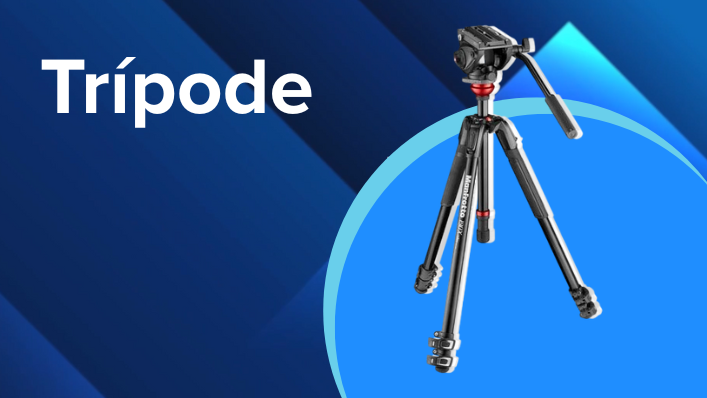Objectes multimèdia amb l’etiqueta: Edificació
Resultats de la cerca
Acte acadèmic de lliurament de diplomes, distincions i premis del curs acadèmic 2024-2025
Accés obert
15 d’oct. 2025
L'EPSEB celebra l'acte acadèmic de lliurament de diplomes a titulats i titulades del Màster universitari en Desenvolupament i Gestió d'Actius Immobiliaris (MUDGI) i del Màster universitari en Diagnosi i Tècniques d'Intervenció en l'Edificació (MUDIATEC) del curs 2024-2025.
Projecte Waste-Based Intelligent Solar-control devices for Envelope Refurbishment (WiSeR) - (Espanyol)
Accés obert
8 d’oct. 2025
El projecte WiSeR —Waste-based Intelligent Solar-control-devices for Envelope Refurbishment— desenvolupa façanes intel·ligents creades a partir de residus per millorar l’eficiència energètica dels edificis i reduir-ne l’impacte ambiental.
Aquest projecte del Departament de Tecnologia de l'Arquitectura, forma part de la convocatòria “Proyectos de Transición Ecológica y Transición Digital 2021” del Ministeri de Ciència i Innovació, amb el suport dels fons NextGenerationEU.
El sector de la construcció genera prop del 40% de les emissions de carboni i del consum energètic mundial. WiSeR proposa una nova manera de construir i rehabilitar edificis, reutilitzant més del 70% dels residus i aplicant principis d’economia circular i ecosuficiència.
El projecte combina tecnologia, disseny i participació ciutadana per desenvolupar elements de façana multifuncionals que controlen la llum i la temperatura, millorant el confort interior i contribuint a la neutralitat climàtica europea 2050.
Les noves solucions es validaran en edificis escolars, implicant infants i comunitats educatives en tallers i processos participatius per dissenyar els dispositius de control solar del futur.
WiSeR és un pas endavant cap a una arquitectura més intel·ligent, circular i sostenible.
Aquest projecte del Departament de Tecnologia de l'Arquitectura, forma part de la convocatòria “Proyectos de Transición Ecológica y Transición Digital 2021” del Ministeri de Ciència i Innovació, amb el suport dels fons NextGenerationEU.
El sector de la construcció genera prop del 40% de les emissions de carboni i del consum energètic mundial. WiSeR proposa una nova manera de construir i rehabilitar edificis, reutilitzant més del 70% dels residus i aplicant principis d’economia circular i ecosuficiència.
El projecte combina tecnologia, disseny i participació ciutadana per desenvolupar elements de façana multifuncionals que controlen la llum i la temperatura, millorant el confort interior i contribuint a la neutralitat climàtica europea 2050.
Les noves solucions es validaran en edificis escolars, implicant infants i comunitats educatives en tallers i processos participatius per dissenyar els dispositius de control solar del futur.
WiSeR és un pas endavant cap a una arquitectura més intel·ligent, circular i sostenible.
La calç segons els seus intèrprets: Joan Ramon Rosell. Part 1
Accés obert
7 d’oct. 2025
En aquest vídeo, el professor Joan Ramon Rosell, arquitecte tècnic, enginyer i doctor en restauració i patrimoni, ens apropa al fascinant món de la calç. Amb més de trenta anys d’experiència dirigint un laboratori de materials, ha centrat la seva recerca en la diagnosi i l’ús dels materials tradicionals. En aquesta intervenció comparteix el seu coneixement i experiència sobre què és la calç i com es produeix a partir de la pedra calcària, els diferents tipus de calç segons la puresa i composició de la pedra, el procés químic de cocció, apagat i carbonatació, així com les propietats i aplicacions en la construcció i restauració del patrimoni. També posa de relleu els beneficis ambientals d’aquest material, amb un cicle tancat i balanços de CO₂ positius, i convida a reflexionar sobre com la saviesa dels materials tradicionals ens pot ajudar a construir i restaurar amb més respecte pel medi ambient i pel nostre patrimoni cultural.
La calç segons els seus intèrprets: Joan Ramon Rosell. Part 2
Accés obert
7 d’oct. 2025
En aquest vídeo, el professor Joan Ramon Rosell, arquitecte tècnic, enginyer i doctor en patrimoni, comparteix la seva experiència i recerca sobre la calç i el seu paper fonamental en la construcció històrica.
Amb més de trenta anys de trajectòria en la diagnosi de materials i la restauració, Rossell ens mostra com la calç ha estat un element clau per a la construcció de la major part del nostre patrimoni arquitectònic.
Presenta exemples concrets, com la muralla medieval del poble, edificada amb un “formigó natural” a base de calç i pedres, que posa de manifest la saviesa constructiva dels mestres antics.
El professor destaca el valor de la calç com a aglomerant ancestral i com a material imprescindible per conservar i restaurar edificis històrics, subratllant la necessitat d’entendre-la no com un vestigi del passat, sinó com un material viu que connecta tradició i futur.
Una reflexió que posa en relleu la responsabilitat de preservar els coneixements tradicionals i aplicar-los a una construcció sostenible i respectuosa amb el medi ambient.
Amb més de trenta anys de trajectòria en la diagnosi de materials i la restauració, Rossell ens mostra com la calç ha estat un element clau per a la construcció de la major part del nostre patrimoni arquitectònic.
Presenta exemples concrets, com la muralla medieval del poble, edificada amb un “formigó natural” a base de calç i pedres, que posa de manifest la saviesa constructiva dels mestres antics.
El professor destaca el valor de la calç com a aglomerant ancestral i com a material imprescindible per conservar i restaurar edificis històrics, subratllant la necessitat d’entendre-la no com un vestigi del passat, sinó com un material viu que connecta tradició i futur.
Una reflexió que posa en relleu la responsabilitat de preservar els coneixements tradicionals i aplicar-los a una construcció sostenible i respectuosa amb el medi ambient.
Projecte Waste-Based Intelligent Solar-control devices for Envelope Refurbishment (WiSeR) - Anglès
Accés obert
7 d’oct. 2025
The WiSeR project — Waste-based Intelligent Solar-control-devices for Envelope Refurbishment — develops intelligent façades made from waste materials to improve buildings’ energy efficiency and reduce their environmental impact.
This project is part of the “Proyectos de Transición Ecológica y Transición Digital 2021” call by the Ministry of Science and Innovation, supported by NextGenerationEU funds.
The construction sector accounts for around 40% of global carbon emissions and energy consumption. WiSeR proposes a new way of building and refurbishing structures by reusing more than 70% of waste materials and applying principles of circular economy and eco-efficiency.
The project combines technology, design, and citizen participation to develop multifunctional façade elements that control light and temperature, enhancing indoor comfort and contributing to Europe’s 2050 climate neutrality goals.
The new solutions will be tested in school buildings, engaging children and educational communities through workshops and participatory processes to design the solar-control devices of the future.
WiSeR represents a step forward towards a more intelligent, circular, and sustainable architecture.
This project is part of the “Proyectos de Transición Ecológica y Transición Digital 2021” call by the Ministry of Science and Innovation, supported by NextGenerationEU funds.
The construction sector accounts for around 40% of global carbon emissions and energy consumption. WiSeR proposes a new way of building and refurbishing structures by reusing more than 70% of waste materials and applying principles of circular economy and eco-efficiency.
The project combines technology, design, and citizen participation to develop multifunctional façade elements that control light and temperature, enhancing indoor comfort and contributing to Europe’s 2050 climate neutrality goals.
The new solutions will be tested in school buildings, engaging children and educational communities through workshops and participatory processes to design the solar-control devices of the future.
WiSeR represents a step forward towards a more intelligent, circular, and sustainable architecture.
Projecte Waste-Based Intelligent Solar-control devices for Envelope Refurbishment (WiSeR)
Accés obert
7 d’oct. 2025
El projecte WiSeR —Waste-based Intelligent Solar-control-devices for Envelope Refurbishment— desenvolupa façanes intel·ligents creades a partir de residus per millorar l’eficiència energètica dels edificis i reduir-ne l’impacte ambiental.
Aquest projecte del Departament de Tecnologia de l'Arquitectura, forma part de la convocatòria “Proyectos de Transición Ecológica y Transición Digital 2021” del Ministeri de Ciència i Innovació, amb el suport dels fons NextGenerationEU.
El sector de la construcció genera prop del 40% de les emissions de carboni i del consum energètic mundial. WiSeR proposa una nova manera de construir i rehabilitar edificis, reutilitzant més del 70% dels residus i aplicant principis d’economia circular i ecosuficiència.
El projecte combina tecnologia, disseny i participació ciutadana per desenvolupar elements de façana multifuncionals que controlen la llum i la temperatura, millorant el confort interior i contribuint a la neutralitat climàtica europea 2050.
Les noves solucions es validaran en edificis escolars, implicant infants i comunitats educatives en tallers i processos participatius per dissenyar els dispositius de control solar del futur.
WiSeR és un pas endavant cap a una arquitectura més intel·ligent, circular i sostenible.
Aquest projecte del Departament de Tecnologia de l'Arquitectura, forma part de la convocatòria “Proyectos de Transición Ecológica y Transición Digital 2021” del Ministeri de Ciència i Innovació, amb el suport dels fons NextGenerationEU.
El sector de la construcció genera prop del 40% de les emissions de carboni i del consum energètic mundial. WiSeR proposa una nova manera de construir i rehabilitar edificis, reutilitzant més del 70% dels residus i aplicant principis d’economia circular i ecosuficiència.
El projecte combina tecnologia, disseny i participació ciutadana per desenvolupar elements de façana multifuncionals que controlen la llum i la temperatura, millorant el confort interior i contribuint a la neutralitat climàtica europea 2050.
Les noves solucions es validaran en edificis escolars, implicant infants i comunitats educatives en tallers i processos participatius per dissenyar els dispositius de control solar del futur.
WiSeR és un pas endavant cap a una arquitectura més intel·ligent, circular i sostenible.
Servei de préstec d’equipament audiovisual, edició i publicació de vídeos. Biblioteca de l’ETSAB
Accés obert
26 de set. 2025
Equipament audiovisual de la biblioteca de l’ETSAB: com fer servir la gravadora de veu
Accés obert
26 de set. 2025
Equipament audiovisual de la biblioteca de l’ETSAB: com fer servir el trípode
Accés obert
26 de set. 2025
Equipament audiovisual de la biblioteca de l’ETSAB: com fer servir la videocàmera
Accés obert
26 de set. 2025
En aquest vídeo t’ensenyem pas a pas, com fer servir la videocàmera disponible a la biblioteca de l’ETSAB
Bienvenido/a a la Biblioteca Oriol Bohigas de la ETSAB: curso 2025-2026
Accés obert
17 de set. 2025
¡Bienvenido/a al nuevo curso 2025-2026 en la ETSAB! En este vídeo te presentamos la Biblioteca Oriol Bohigas, tu espacio de referencia para el estudio y la investigación. Descubre nuestros servicios principales, desde el acceso a colecciones especializadas hasta el préstamo de equipamiento. Te explicamos cómo encontrar toda la información que necesitas para tus trabajos a través de nuestra web. ¡Empieza el curso con nosotros y saca el máximo partido a tu experiencia universitaria!
Más información en: https://bibliotecnica.upc.edu
Más información en: https://bibliotecnica.upc.edu


